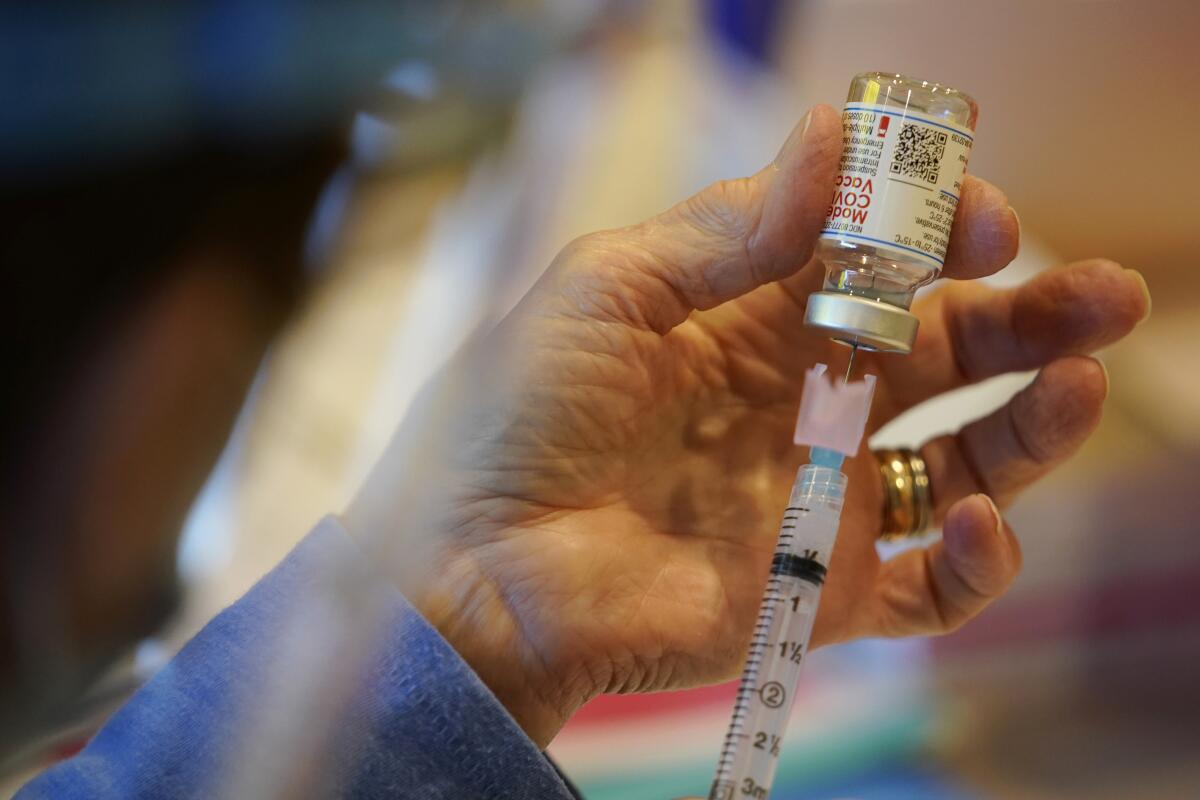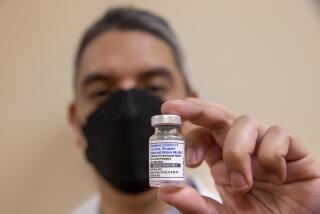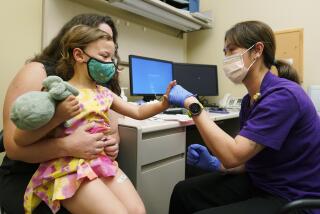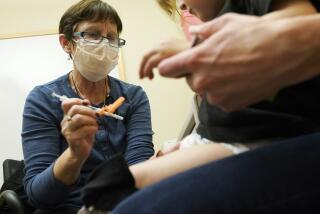Moderna says its COVID-19 vaccine works in kids as young as 12

- Share via
Moderna said Tuesday that its COVID-19 vaccine strongly protects children as young as 12, a step that could put the shot on track to become the second option for young adolescents in the U.S.
With global vaccine supplies still tight, much of the world is struggling to vaccinate adults in the quest to end the pandemic. But earlier this month, the U.S. and Canada authorized a similar vaccine — made by Pfizer-BioNTech — to be used for youths 12 and up.
Moderna aims to be next in line, saying it will submit its new data to the U.S. Food and Drug Administration and other global regulators early next month.
The company studied more than 3,700 12- to 17-year-olds. Preliminary findings showed that the vaccine triggered the same signs of immune protection in children as it does in adults, and the same kind of temporary side effects such as sore arms, headache and fatigue.
There were no COVID-19 diagnoses in recipients given two doses of the Moderna vaccine compared with four cases among those given dummy shots. In a news release, the company also said the vaccine appeared 93% effective two weeks after the first dose.
While children are far less likely than adults to get seriously ill from the coronavirus, they represent about 14% of the nation’s COVID-19 cases. At least 316 have died in the U.S. alone, according to a tally by the American Academy of Pediatrics.
With plenty of vaccine supply in the U.S., younger teens flocked to get Pfizer’s shot in the days after the FDA opened it to them, part of a push to get as many youths vaccinated as possible before the next school year.
Both Pfizer and Moderna have begun testing in even younger children, from age 11 down to 6-month-old babies. This testing is more complex: Teens receive the same dose as adults, but researchers are testing smaller doses in younger children. Experts hope to see some results in the fall.
More to Read
Sign up for Essential California
The most important California stories and recommendations in your inbox every morning.
You may occasionally receive promotional content from the Los Angeles Times.













